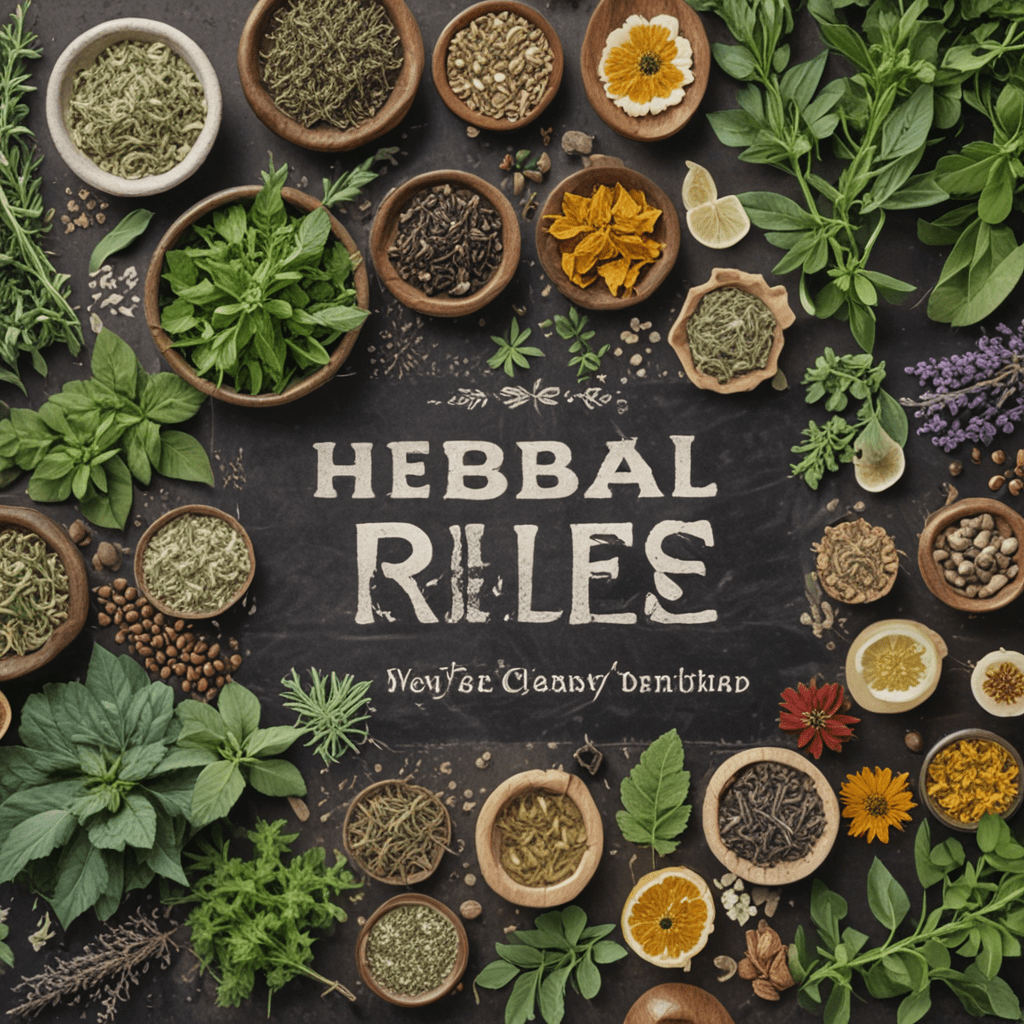
1. Introduction
In today's fast-paced world, stress has become an inevitable part of life. It can manifest in various forms, from mild anxiety to overwhelming burnout, significantly impacting our mental well-being. However, there are natural and effective ways to combat stress and promote mental clarity, and herbal remedies have been used for centuries to provide relief.
2. Understanding Stress and Its Impact on Mental Health
Stress is a natural response to external stressors or threats. When we encounter stressful situations, our bodies release hormones like cortisol and adrenaline, which trigger the "fight-or-flight" response. While this response is essential for survival, chronic stress can lead to a range of physical and mental health issues.
Prolonged stress can disrupt our sleep patterns, weaken our immune system, and increase the risk of chronic diseases. It can also impair cognitive function, leading to difficulty concentrating, poor memory, and reduced problem-solving abilities. Stress can also exacerbate mental health conditions such as anxiety and depression.
3. Herbal Remedies: An Ancient Approach to Stress Relief
Herbal remedies have been utilized for thousands of years to relieve stress and promote relaxation. These natural remedies harness the therapeutic properties of plants to address the root causes of stress and support overall mental well-being. Unlike medications, herbal remedies typically have fewer side effects and can be integrated into daily routines for sustainable stress management.
4. Lavender: Calming and Relaxing Properties
Lavender is renowned for its calming and relaxing effects. The herb contains compounds called linalool and linalyl acetate, which have sedative and anxiolytic properties. Lavender oil has been shown to reduce stress levels, improve sleep quality, and alleviate symptoms of anxiety and depression. It can be used in various forms, such as essential oils, tea, or capsules.
5. Chamomile: Soothing and Anti-Anxiety Effects
Chamomile is another popular herbal remedy for stress relief. It contains flavonoids called apigenin and luteolin, which bind to receptors in the brain to promote relaxation and reduce anxiety. Chamomile tea has been traditionally used as a sleep aid and to alleviate digestive issues associated with stress. It can also be used in topical applications, such as baths or compresses, to soothe irritated skin and reduce inflammation.
6. Lemon Balm: Enhancing Cognitive Function and Reducing Stress
Lemon balm is an herb known for its cognitive-enhancing and stress-reducing effects. It contains compounds called rosmarinic acid and caffeic acid, which have antioxidant and anti-inflammatory properties. Lemon balm has been shown to improve memory, focus, and attention while also reducing stress and anxiety levels. It can be consumed as a tea, extract, or supplement.
7. Ashwagandha: Adaptogenic Herb for Stress Resilience
Ashwagandha is an adaptogenic herb that helps the body adapt to stress and promote overall resilience. It contains compounds called withanolides, which have been shown to reduce cortisol levels, improve sleep quality, and enhance cognitive function. Ashwagandha is particularly beneficial for individuals experiencing chronic stress or burnout. It can be taken in capsule form or as a tea.
8. Valerian Root: Promoting Sleep and Reducing Anxiety
Valerian root is a potent herb known for its sedative and anxiolytic properties. It contains compounds called valerenic acid and valepotriates, which bind to receptors in the brain to promote relaxation and reduce anxiety. Valerian root has been traditionally used as a sleep aid and to alleviate symptoms of insomnia. It can be consumed as a tea, extract, or capsule.
9. Kava Kava: Powerful Anxiolytic and Relaxing Herb
Kava kava is a Polynesian herb that has been used for centuries to promote relaxation and reduce anxiety. It contains compounds called kavalactones, which have anxiolytic, sedative, and muscle-relaxing effects. Kava kava is particularly effective for individuals experiencing severe anxiety or stress. It is typically consumed as a tea or extract.
10. Herbal Blends: Combining Herbs for Optimal Results
Herbal blends combine multiple herbs to achieve synergistic effects. By combining herbs with complementary properties, herbal blends can provide a more comprehensive approach to stress relief and mental clarity. For example, a blend of lavender, chamomile, and lemon balm can promote relaxation, reduce anxiety, and improve cognitive function. Herbal blends can be consumed as teas, tinctures, or capsules.
Frequently Asked Questions (FAQs)
Q: Are herbal remedies safe for everyone?
A: While herbal remedies are generally considered safe, it is important to consult a healthcare professional before using them, especially if you have any underlying health conditions or are taking medications. Some herbs may interact with certain medications or have side effects.
Q: How long does it take for herbal remedies to work?
A: The onset of effects from herbal remedies can vary depending on the herb and the individual's response. Some herbs, such as lavender and chamomile, may provide immediate calming effects, while others, such as ashwagandha, may take several weeks of consistent use to show significant results.
Q: Can I use herbal remedies long-term?
A: Some herbal remedies are safe for long-term use, while others may require periodic breaks to prevent potential side effects. It is important to follow the recommended dosage and consult a healthcare professional for guidance on long-term use.

